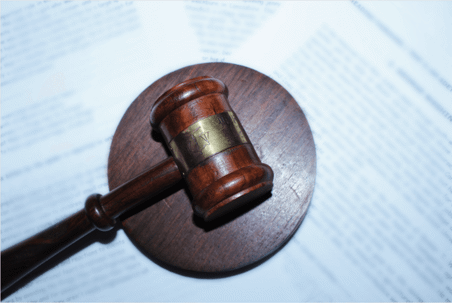Persons deported from the United States are generally barred from applying for visas to return to the United States. Under some conditions, the bar is permanent. However, the permanent bar is not always permanent, and in most cases, can be cured by waiting outside the United States for ten years, then filing an I-212 in conjunction with your immigrant visa application.
However, there are some options even for a person facing a permanent bar. Principally, the person can seek waiver of the permanent bar by filing immigration Form I-212 (Application for Permission to Reapply for Admission to the United States After Removal). Sometimes Form I-601 (Application For Waiver of Grounds of Inadmissibility) may also be needed. The combination filing of Forms 212/601 combination is the most common method of seeking a waiver of the permanent bar, but the Forms can be filed separately, and, in most scenarios involving a permanent bar, the individual must wait outside of the United States for ten years.
What is Form I-212?
As the title of the Form suggests, Form I-212 is a request to US immigration services for permission to reapply for admission. Under various statutes and regulations, immigration services have the ability to grant a waiver of the bar on applying for a visa. Whether to grant a waiver is entirely within the power of immigration officials. As described here, while it is entirely up to the discretion of the immigration officials whether to approve a waiver, by law, immigration officials must consider various favorable and unfavorable factors presented in an applicant's I-212 form and supporting documentation. Examples of factors include these:
- Nature of circumstances and basis for deportation
- Number and seriousness of violations of US immigration laws and a willful disregard for other laws
- Close family ties in the United States
- Hardship to your relatives who are U.S. citizens or lawful permanent residents or to yourself
- Evidence of reformation and rehabilitation
- Length of lawful presence in the United States and your immigration status while you were lawfully present
- Evidence of respect for law and order, good moral character, and family responsibilities or intent to hold family responsibilities
- Absence of significant undesirable or negative factors
- Eligibility for a waiver of other inadmissibility grounds -- this factor is why applicants often file a Form I-601 along with a Form I-212
- Likelihood that you will become a lawful permanent resident in the near future or likelihood of applicant becoming public charge
- Unauthorized employment in the United States
- And more
If immigration officials grant the I-212 waiver, then the person is ELIGIBLE to file an application for admission. That is, I-212 does not grant a visa; rather it only grants permission to file for a visa.
What is Form I-601?
As noted, often Form I-601 is filed at the same time that a Form I-212 is filed. I-601 is a petition for waiver of grounds of excludability. If granted, this then becomes a positive factor that immigration officials must consider in evaluating whether to grant the I-212 petition.
To grant an I-601 petition, the circumstances identified in the petition must be EXTREME hardships that are imposed on the applicant or a qualifying family member. Some examples of extreme hardship might involve extreme health issues (with an elderly parent or young children) where specialized care can only be obtained in the US. Other examples might include extreme financial consequences of being excluded, educational issues, destruction of family bonds, religious, racial and ethnic persecution in the country of origin and more.
As with the I-212 petition, whether to grant a waiver pursuant to an I-601 is solely within the discretion of the US immigraiton officials. In addition to factors that support waiver, immigration officials will consider other factors such as risk of harm by allowing the waiver, the nature and seriousness of reasons why the applicant is barred from admission and more.
Contact Yekrangi & Associates Today
For more information, contact the Orange County Immigration Attorneys at Yekrangi & Associates today. You are not alone and we will fight for you. Yekrangi & Associates works to meet a higher standard. Our first goal is your satisfaction. Contact us at (949) 478-4963 to schedule a consultation or complete our convenient “Get Your Consultation” form here. We are located in Irvine, California.

